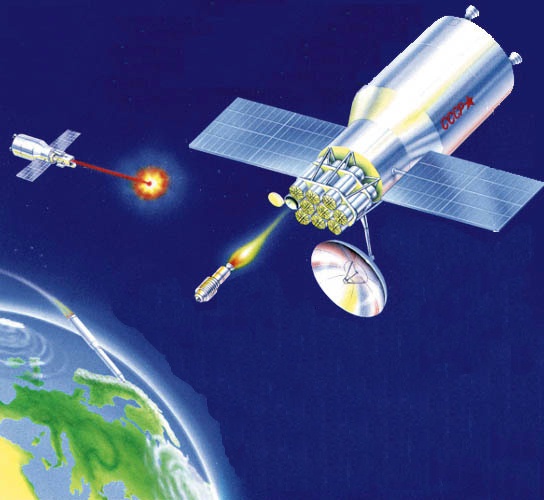|
Stockton Center For International Law
The Stockton Center for International Law is an American research center at the Center for Naval Warfare Studies at the Naval War College. The center is focused on original research and analysis in international law and military operations. Predominantly, the Stockton Center has been involved in the review of various military manuals under international law, including the Tallinn Manual 2.0, the San Remo Manual and thWoomera ManualJames Kraska, Letter from the Chairman, STOCKTON CENTER FOR INTERNATIONAL LAW 2019 ANNUAL REPORT Additionally, the center is responsible for the International Law Studies Journal, the editor-in-chief of which is the current Charles H. Stockton Professor of International Law, Professor James Kraska. The center routinely organizes workshops and seminars on contemporary issues in international law. History International Law at the Naval War College The study of international law has historically been crucial to the courses and instruction at the Naval W ... [...More Info...] [...Related Items...] OR: [Wikipedia] [Google] [Baidu] |
Naval War College
The Naval War College (NWC or NAVWARCOL) is the staff college and "Home of Thought" for the United States Navy at Naval Station Newport in Newport, Rhode Island. The NWC educates and develops leaders, supports defining the future Navy and associated roles and missions, supports combat readiness, and strengthens global maritime partnerships. The Naval War College is one of the senior service colleges including the United States Army War College, Army War College, the Marine Corps War College, and the USAF Air War College. Additionally, the U.S. Department of Defense operates the National War College. History The college was established on October 6, 1884; its first president, Commodore Stephen Luce, Stephen B. Luce, was given the old building of the Newport Asylum for the Poor to house it on Coasters Harbor Island in Narragansett Bay. Among the first four faculty members were Tasker H. Bliss, a future Army Chief of Staff, James R. Soley, the first civilian faculty member and a f ... [...More Info...] [...Related Items...] OR: [Wikipedia] [Google] [Baidu] |
Law Of The Sea
Law of the sea (or ocean law) is a body of international law governing the rights and duties of State (polity), states in Ocean, maritime environments. It concerns matters such as navigational rights, sea mineral claims, and coastal waters jurisdiction. The connotation of ''ocean law'' is somewhat broader, but the law of the sea (anchored in the United Nations Convention on the Law of the Sea (UNCLOS)) is so comprehensive that it covers all areas of ocean law as well (e.g., marine environmental law, maritime law). While drawn from a number of international customs, treaties, and agreements, modern law of the sea derives largely from the United Nations Convention on the Law of the Sea. That convention is effective since 1994, and is generally accepted as a codification of customary international law of the sea, and is sometimes regarded as the "constitution of the oceans". Law of the sea is the public law counterpart to admiralty law (also known as maritime law), which applies to ... [...More Info...] [...Related Items...] OR: [Wikipedia] [Google] [Baidu] |
Research Institutes Of International Relations
Research is creative and systematic work undertaken to increase the stock of knowledge. It involves the collection, organization, and analysis of evidence to increase understanding of a topic, characterized by a particular attentiveness to controlling sources of bias and error. These activities are characterized by accounting and controlling for biases. A research project may be an expansion of past work in the field. To test the validity of instruments, procedures, or experiments, research may replicate elements of prior projects or the project as a whole. The primary purposes of basic research (as opposed to applied research) are documentation, discovery, interpretation, and the research and development (R&D) of methods and systems for the advancement of human knowledge. Approaches to research depend on epistemologies, which vary considerably both within and between humanities and sciences. There are several forms of research: scientific, humanities, artistic, economic, s ... [...More Info...] [...Related Items...] OR: [Wikipedia] [Google] [Baidu] |
International Law Organizations
International is an adjective (also used as a noun) meaning "between nations". International may also refer to: Music Albums * ''International'' (Kevin Michael album), 2011 * ''International'' (New Order album), 2002 * ''International'' (The Three Degrees album), 1975 *''International'', 2018 album by L'Algérino Songs * The Internationale, the left-wing anthem * "International" (Chase & Status song), 2014 * "International", by Adventures in Stereo from ''Monomania'', 2000 * "International", by Brass Construction from ''Renegades'', 1984 * "International", by Thomas Leer from ''The Scale of Ten'', 1985 * "International", by Kevin Michael from ''International'' (Kevin Michael album), 2011 * "International", by McGuinness Flint from ''McGuinness Flint'', 1970 * "International", by Orchestral Manoeuvres in the Dark from '' Dazzle Ships'', 1983 * "International (Serious)", by Estelle from '' All of Me'', 2012 Politics * Internationalism (politics) * Political international, a ... [...More Info...] [...Related Items...] OR: [Wikipedia] [Google] [Baidu] |
International Humanitarian Law
International humanitarian law (IHL), also referred to as the laws of armed conflict or the laws of war, is the law that regulates the conduct of war (''wikt:jus in bello, jus in bello''). It is a branch of international law that seeks to limit the effects of armed conflict by protecting persons who are not participating in hostilities and by restricting and regulating the means and methods of warfare available to combatants. International humanitarian law is inspired by considerations of humanity and the mitigation of human suffering. It comprises a set of rules, which is established by treaty or custom and that seeks to protect persons and property/objects that are or may be affected by armed conflict, and it limits the rights of parties to a conflict to use methods and means of warfare of their choice. Sources of international law include international agreements (the Geneva Conventions), customary international law, general principles of nations, and case law. It defines the ... [...More Info...] [...Related Items...] OR: [Wikipedia] [Google] [Baidu] |
Human Rights
Human rights are universally recognized Morality, moral principles or Social norm, norms that establish standards of human behavior and are often protected by both Municipal law, national and international laws. These rights are considered inherent and inalienable, meaning they belong to every individual simply by virtue of being human, regardless of characteristics like nationality, ethnicity, religion, or socio-economic status. They encompass a broad range of civil, political, economic, social, and cultural rights, such as the right to life, freedom of expression, protection against enslavement, and right to education. The modern concept of human rights gained significant prominence after World War II, particularly in response to the atrocities of the Holocaust, leading to the adoption of the Universal Declaration of Human Rights (UDHR) by the United Nations General Assembly in 1948. This document outlined a comprehensive framework of rights that countries are encouraged t ... [...More Info...] [...Related Items...] OR: [Wikipedia] [Google] [Baidu] |
Space Warfare
Space warfare is combat in which one or more belligerents are in outer space. The scope of space warfare includes ''ground-to-space warfare'', such as attacking satellites from the Earth; ''space-to-space warfare'', such as satellites attacking satellites; and ''space-to-ground warfare'', such as satellites attacking Earth-based targets. There exist international treaties, which are in place to attempt to regulate conflicts in space and limit the installation of space weapon systems, especially nuclear weapons. On October 31, 2023, during a Yemeni missile strike on Israel, Israel's Arrow 2 system intercepted a ballistic missile launched from Yemen by Houthi rebels; this successful interception occurred outside of Earth's atmosphere thus making it the first recorded practical instance of space warfare during an active conflict. On April 14, 2024, Iran launched more than 120 ballistic missiles at Israel, making it the first large-scale incident in which a space weapon was u ... [...More Info...] [...Related Items...] OR: [Wikipedia] [Google] [Baidu] |
South China Sea
The South China Sea is a marginal sea of the Western Pacific Ocean. It is bounded in the north by South China, in the west by the Indochinese Peninsula, in the east by the islands of Taiwan island, Taiwan and northwestern Philippines (mainly Luzon, Mindoro and Palawan Island, Palawan), and in the south by Borneo, eastern Sumatra and the Bangka Belitung Islands, encompassing an area of around . It communicates with the East China Sea via the Taiwan Strait, the Philippine Sea via the Luzon Strait, the Sulu Sea via the straits around Palawan, the Java Sea via the Karimata Strait, Karimata and Bangka Straits and directly with Gulf of Thailand. The Gulf of Tonkin is part of the South China Sea. $3.4 trillion of the world's $16 trillion Maritime transport, maritime shipping passed through South China Sea in 2016. Oil and natural gas reserves have been found in the area. The Western Central Pacific accounted for 14% of world's commercial fishing in 2010. The South China Sea Islands, ... [...More Info...] [...Related Items...] OR: [Wikipedia] [Google] [Baidu] |
Arctic Region
The Arctic (; . ) is the polar region of Earth that surrounds the North Pole, lying within the Arctic Circle. The Arctic region, from the IERS Reference Meridian travelling east, consists of parts of northern Norway (Nordland, Troms, Finnmark, Svalbard and Jan Mayen), northernmost Sweden ( Västerbotten, Norrbotten and Lappland), northern Finland (North Ostrobothnia, Kainuu and Lappi), Russia (Murmansk, Siberia, Nenets Okrug, Novaya Zemlya), the United States (Alaska), Canada (Yukon, Northwest Territories, Nunavut), Danish Realm (Greenland), and northern Iceland (Grímsey and Kolbeinsey), along with the Arctic Ocean and adjacent seas. Land within the Arctic region has seasonally varying snow and ice cover, with predominantly treeless permafrost under the tundra. Arctic seas contain seasonal sea ice in many places. The Arctic region is a unique area among Earth's ecosystems. The cultures in the region and the Arctic indigenous peoples have adapted to its cold and extrem ... [...More Info...] [...Related Items...] OR: [Wikipedia] [Google] [Baidu] |
Maritime Security
Maritime security is an umbrella term informed to classify issues in the Maritime transport, maritime domain that are often related to national security, marine environment, economic development, and human security. This includes the world's oceans but also regional seas, territorial waters, rivers and ports, where seas act as a “''stage for geopolitical power projection, interstate warfare or militarized disputes, as a source of specific threats such as piracy, or as a connector between states that enables various phenomena from colonialism to globalization''”. The theoretical concept of maritime security has evolved from a narrow perspective of national naval power projection towards a buzzword that incorporates many interconnected sub-fields. The definition of the term maritime security varies and while no internationally agreed definition exists, the term has often been used to describe both existing, and new regional and international challenges to the maritime domain. The ... [...More Info...] [...Related Items...] OR: [Wikipedia] [Google] [Baidu] |
Command Responsibility
In the practice of international law, command responsibility (also superior responsibility) is the legal doctrine of hierarchical accountability for war crimes, whereby a commanding officer (military) and a superior officer (civil) are legally responsible for the war crimes and the crimes against humanity committed by his subordinates; thus, a commanding officer always is accountable for the acts of commission and the acts of omission of his soldiers.Guilty Associations: Joint Criminal Enterprise, Command Responsibility, and the Development of International Criminal Law by Allison Marston Danner and Jenny S. Martinez, 15 September 2004. [...More Info...] [...Related Items...] OR: [Wikipedia] [Google] [Baidu] |








